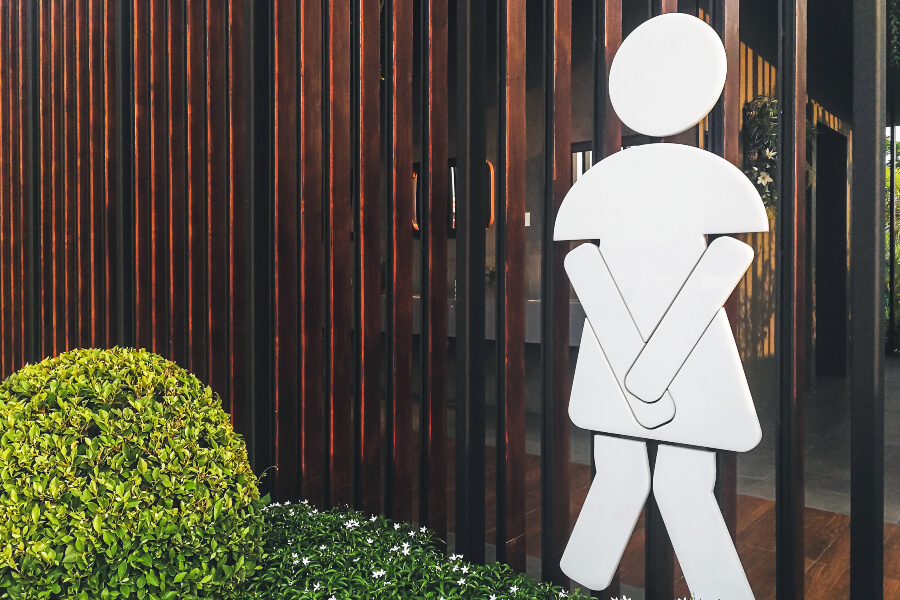Editor’s Note: Some of us are heading to high school or college reunions, To brace ourselves, we re-read this thoughtful piece about perceived winners (and losers) in the game of life. We thought you might gain perspective from it too.
***
I never dreamed I’d be celebrating anything that was 50 years ago, let alone my high school experience, which was a footnote in my emotional life, and a time when I felt completely invisible. But there I was at my high school class gathering in September.
I am sure my experience at the event is not unique. The women looked surprisingly good, and the men—well, not so much. And, of course, the ones who didn’t give you a second look then, now say, “Ah, I always had a crush on you.” For me, the most compelling question was whether those who were stars back then continued having what psychiatrists call “a soft ride.” I posed this to Jeanne, former Homecoming Queen. “Believe me, it has not been soft,” she quickly replied.
Life After High School: Is Our Teenage Status Our Destiny?
We all meet or see people about whom we think, “I bet they never suffered insecurity and angst” en route from pimply adolescence through adulthood. “We over-idealize the paths of other people, and we live in a culture where we are taught to expect perfect lives. So adversity too often feels shameful and personal,” says New York psychiatrist Dr. Anna Fels.
We over-idealize the paths of other people, and we live in a culture where we are taught to expect perfect lives.
Once you start mulling over this theme, it shows up in unexpected places. The Ben Stiller movie, Brad’s Status, deals with a middle-aged man’s envy over those classmates he thought had it all. In his best-selling novel, A Gentleman In Moscow, Amor Towles writes: “When one experiences a profound setback in the course of an enviable life, one has a variety of options: One may attempt to hide all evidence of the change in one’s circumstances. … In a state of self-pity, one may retreat from the world.”
The Hidden Benefits of “A Hard Ride”
But the truth is, those of us who do experience, expect, and, hopefully, negotiate the ups and downs of life early may have an advantage: resilience and strength.
“One needs to learn sturdiness early to regulate one’s self, “ explains New York psychiatrist and author Dr. Arlene Heyman, “because eventually, there will be blows.” After all, regardless of financial advantages, social skills, connections, and fortunate genetics, we all meet at the great equalizers: heartbreak, dying parents, unexpected illnesses, freak accidents.
The young person with the soft ride, who has so much going his or her way, has less opportunity to learn recovery and self-soothing skills.
For the high-school “soft riders,” adversity may feel acutely complicated and hard. Being 68 just might be tougher for former Homecoming Queens than for those of us who once gazed at them with yearning, as my classmate Jeanne hinted. (It turns out she has been through three divorces, a battle with breast cancer and had just buried her best friend.)
“Some anxiety is good for growth, no matter what age,” says Los Angeles clinical psychologist Joan Willens Beerman (no relation to the author). “The young person with the soft ride, who has so much going his or her way, has less opportunity to learn recovery and self-soothing skills, which are necessary when facing disappointment or failure in the future.”
What the “Soft Riders” Have to Say
Bonnie, a dear friend, is still luminous in her 70s. Grown men recall their younger selves following her home after school. The “soft ride” had begun. She admits that her first real jolt came when her current husband had a heart operation. Today, that sense of fragility clings mightily, particularly as aging issues take hold. “I never felt tested before, but I do today, because now I live with life’s unpredictability and I fear loss each and every day,” she says. Would her skin be thicker if there had been more tests early on?
Experts point out that one’s disposition is a key ingredient. Temperament, says Dr. Fels, “turns out to have a huge impact on quality of life and resilience. Not to mention that people with sunny outgoing personalities get more positive feedback from infancy on.
Melinda Diner, a 66-year-old living in California’s San Fernando Valley, knows of sunny smiling faces, having been perceived as one through her youth. She recently started posting her 7th grade diary on Facebook, which spoke of constant insecurity. “Dear Diary,” she wrote, “I sure hope I’m cute when I’m older, if not, I’ll be quite depressed. Nobody in my crowd likes me anymore.” It stunned former classmates, who had voted her “Miss Personality.”
Diner has not had the soft ride her classmates predicted. There was a divorce and two bouts of breast cancer. Yet she remains positive, mostly due to relief from finally getting past the girl she was thought to be. “It wasn’t until I was much older that I stopped doing the Melinda Diner Show.”
The Pressure to Make Life Look Effortless
That pressure to keep up the façade is its own burden, and not merely because the soft rider may be hiding inner doubts and demons. “Image maintenance can become a full-time job,” says psychologist Willens-Beerman.
Would her skin be thicker if there had been more tests early on?
Interestingly, this is not a gender issue, though the physical genetics tend to affect women more. Where we once stressed over bra size, now we fight aging faces. But the “Golden Boy” syndrome is nothing to be sneezed at. Arthur Drooker, a photographer and author now in his early 60s, has had a relatively soft ride himself: tony private school, Ivy League college, and a good (if late in life) marriage.
But his memories of softer riders remain close to the surface. “There was one boy I idolized in high school,” recalls Drooker. “He was a year ahead of me and whenever we’d chat, I’d think, ‘Doug talked to me!’” Drooker was shocked when he learned that Doug committed suicide while in grad school at Harvard—a tragic turn that might evoke Bob Dylan’s words, “The loser now will be later to win.”
A Question of Expectations
In a follow-up email after our reunion, my friend Jeanne, the Homecoming Queen, pointed out that whether we see ourselves having a hard or soft ride may be a matter of what we expected out of life. At least that’s how it has worked for her. “School was fun, good grades came easily and I had wonderful friends,” she said. “I saw the world as a fabulous place full of promise and hope.”
Whether we see ourselves having a hard or soft ride may be a matter of what we expected out of life.
She sailed through University of California at Berkeley and expected that the good stretch would continue–then came the leaks in her bubble. A divorce here. A job loss there. “Every time life threw me a curve ball I made every effort to learn how to respond and hit a home run. The problems increased my skills. The challenges gave me more wisdom. But, responding to these problems always took away a piece of joy for life. So, I now must work harder to keep that spirit and optimism of youth alive.”
Jeanne acknowledges that others may look at her life–she’s financially secure, had loving parents, has good health except for her cancer ordeal–and think she has had a privileged life. But for her it contained more adversity than she’d planned for. “That happy retirement of drinking champagne with your husband while cruising on a riverboat is not my reality,” she said. “It is only something I observe on TV. My ride now is finally softer but alas lonely. So, again I will move forward and pick myself up and start making a new life.”
Loving Your Ride
I took no satisfaction at my reunion in discovering that those who had those magical early years may have peaked or stalled. The unexceptional lives led by most of us are worth examining but, hopefully, not stressing over. I find that seeing life as a series of moments—the good ones—helps lessen unease over what could be considered an overall portfolio of mediocrity.
Simultaneously, this helps you perceive another’s seemingly easier path with less longing and more understanding. “Don’t compare your insides with someone else’s outside,” warns Dr. Heyman. “It’s illusory and as much a denigration of yourself as an idealization of the other person.”
I find that seeing life as a series of moments—the good ones—helps lessen unease over what could be considered an overall portfolio of mediocrity.
Those who ride life’s roller-coaster may not only better navigate the occasional bumps to the bottom but enjoy the rises to the top even more. “People who appear to have a soft landing at midlife may have successfully resolved those challenges by their 50s and 60s,” says psychologist Dr. Vivian Diller. “As a result, they know how to leave behind what doesn’t matter and focus on what does. Now they can create, if not a soft ride, a good life.”
While I can’t say it is fun to be able to look back at anything that happened 50 years ago, it is a perfect time to gain perspective, and appreciate the path you’re on—be it soft, hard, or in between.





















0 Comments